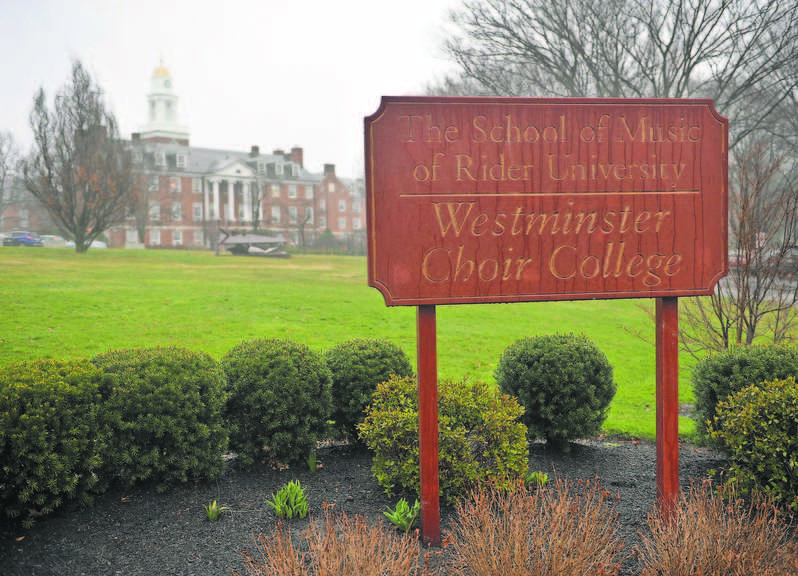Seven members of the Westminster Foundation are suing Rider University and the Chinese buyer of the school’s Westminster Choir College in a state court in an attempt to block the sale.
In a 60-page lawsuit filed Sept. 6 in Superior Court, the group of plaintiffs claimed, among other things, that Beijing Kaiwen Education Technology Co. Ltd. is a subsidiary of another firm that the Chinese government owns. To them, that raises concerns about academic and religious freedom, given China’s record in both areas.
“For nearly one hundred years, Westminster has been an institution dedicated to higher education in the field of theology and sacred music, along with other allied fields,” the suit read. “The conveyance of this institution by Rider to a corporation controlled by the government of China with its suppression, supervision and interference with free religious exercise and its mandatory registration of religious organizations is contrary to and antithetical to the mission of Westminster so as to disqualify Kaiwen from succeeding to control of this charitable, educational foundation.”
Rider is looking to sell Westminster, along with the campus, for $40 million. If the transaction is completed, Rider would cease operating the school after the current academic year ends.
Under the proposed agreement, Kaiwen would agree to operate Westminster for a five-year-period and then would be “free to convert the school and its properties into other ventures or purposes,” the suit said.
The seven plaintiffs named in the suit are Howard McMorris, Joseph Beck, Charles Goldberg, Jonathan Slawson, Constance Fee, Jamie Flack and Carol Jenkins, all of whom belong to the foundation.
In their suit, the plaintiffs point to a 1935 agreement in which the now late Sophia Strong Taylor donated 23 acres in Princeton for the Westminster campus, provided it remained a school for training music ministers at Evangelical churches. Were that to ever stop, she stipulated that the property would go to the Princeton Theological Seminary, the suit said.
Subsequently, before the formerly independent Westminster merged with Rider in the early 1990s, the Choir College and the Seminary reached a deal setting aside that requirement. But they agreed that Westminster would continue to “fulfill the purposes and condition” of Taylor’s grant, the suit read.
“Westminster and Seminary never intended their agreement would be a vehicle to enable the sale of Westminster to a commercial entity with the proceeds being dedicated to Rider’s secular, non-religious purposes, without being used to support Westminster’s programming,” the suit said. “Rider’s actions in selling Westminster and its property to a commercial company, controlled by an authoritarian foreign government with no experience in higher education or religious training, that will be entitled to terminate the academic program after five years and use the property for non-Westminster purposes is contrary to, and antithetical to the purposes, intent and conditions of the Strong Taylor grant and trust.”
The suit points to an alleged incident where Joe Miller, Westminster’s choral director, was told that the Chinese government would have to approve the Westminster Choir’s repertoire before it could perform in the country as an example of academic freedom and creative expression could suffer as a result of the sale.
In addition to Kaiwen and Rider, Westminster Choir College Acquisition Corp., a nonprofit formed to operate the music school after the deal is competed, is named as a defendant.
Representatives for Rider and the Westminster Choir College Acquisition Corp. could not be reached for comment.
In a news release announcing the sale, Fee, an alumna of Westminster, said “never before has an American college or university come under the direct control of an authoritarian foreign government.”

